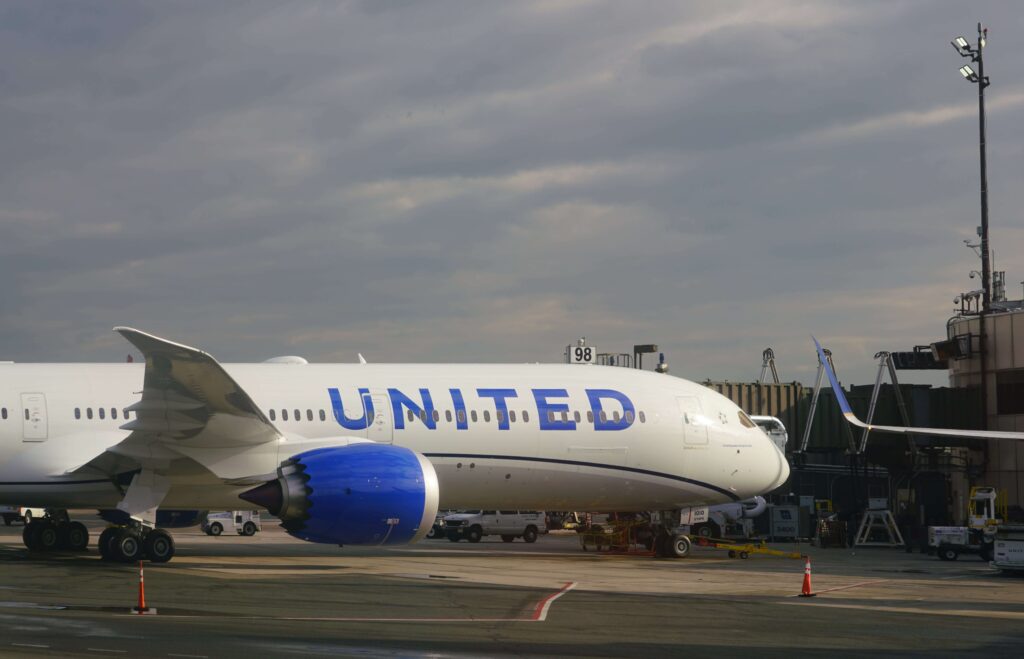United Airlines is preparing to launch a new direct non-stop service between Washington Dulles Airport and Cape Town, the airline announced in a press statement.
The U.S. Department of Transportation (DoT) granted the airline three weekly direct flights, which will commence on November 17, 2022.
The airline has commenced ticket sales for its new non-stop service to Cape Town which will be operated by its Boeing 787-9 Dreamliner fleet. However, the new route is still subject to approval by the South African Government.
Patrick Quayle, United’s Senior Vice President of Global Network Planning and Alliances, commented on the airline’s expansion in Africa.
“These new flights build upon our existing year-round New York/Newark to Cape Town service – together they’ll provide a near-daily pattern from the U.S. to Cape Town along with connectivity to the broader region through our Airlink partnership,” said Quayle in the statement.
Washington D.C. is also home to the fifth largest South-African-born population said the airline, making the new route an attractive development for both the airline and its customers.
“Prior to the new United flight, Washington, D.C. to Cape Town was the largest route between the U.S. and Cape Town without nonstop service,” said United in the statement.
Today, United Airlines operates more flights to South Africa compared to any other North American airline.
The airline will soon offer a total of 19 weekly flights to Africa, according to the statement. This includes nonstop flights from New York/Newark to Johannesburg and Washington D.C. to Accra, Ghana and Lagos, Nigeria which the airline launched in 2021.
US-Africa Atlantic corridor: Delta, United face off for Cape Town
Over recent years, the US – Africa Atlantic corridor (flights between the United States and South Africa) has been subject to the attention and rivalry of two US airlines – Delta Airlines (DAL) and United Airlines.
The two carriers have battled-it-out, throwing legal blows to oppose the other from gaining the upper hand with more frequencies from their US hubs to SA’s Johannesburg and Cape Town.
According to a bilateral agreement between the United States and South Africa, US airlines are limited to 21 air service frequencies to South Africa per week.
Prior to the pandemic, Delta held a larger market share of routes to South Africa, for the good part of two decades. Its only competition was South African Airways (before its entry into business rescue). United on the other hand had only launched its inaugural flight to Cape Town in 2019.
However, United’s flights to Cape Town gained traction and momentum.
In August 2022, United is projected to have a 58% seat share between the US and South Africa, compared with Delta’s share of approximately 42%, according to a data report from CAPA and OAG.
Prior to United receiving DoT approval for its three weekly services from Washington to Cape Town, the frequency share between US Airlines for services to South Africa were split as follows:
-
United Airlines – 10 weekly frequencies, New York/Newark (EWR) to Cape Town(CPT) (three weekly), and New York/Newark (EWR) to Johannesburg (JNB)(daily);
-
Delta Airline – 7 weekly frequencies, Atlanta(ATL) to Johannesburg(JNB)(daily).
In February and March 2022, Delta Airlines (DAL) and United Airlines submitted an application to the DoT for rights to operate three weekly services to Cape Town from their hubs in Atlanta and Washington-Dulles respectively.
For United this would provide a near-daily pattern to Cape Town.
However only four frequencies of the 21 allowed frequencies remained. Hence Delta Airlines (DAL) was vying to deny United Airlines from gaining majority of the seat market share on seats to South Africa.
However, United argued that the approval of its services from the US Capital to South Africa’s capital held larger government and trade benefits compared to Delta’s offer.
Stalemate: Both airlines get what they want
In July 2022 the US DoT tentatively approved three weekly frequencies to Cape Town each for Delta Airlines (DAL) and United Airlines, after negotiating two additional frequencies with the South African Government.
According to a Business Travel News (BTN) report the South African department “advised that upon certain conditions being met, the two extra frequencies shall be considered as espoused in the Agreement.”
